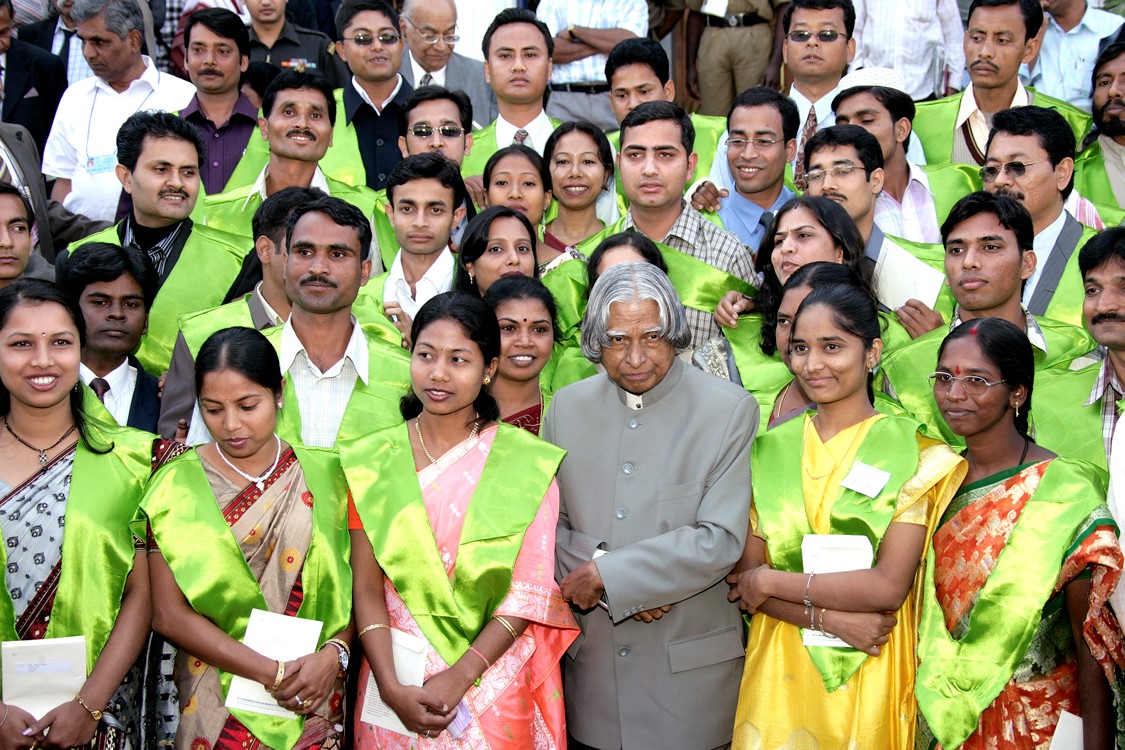
Rapid technological advancements worldwide have widened the rich-poor and urban-rural divides. The challenge now is to enlist technology as an ally in efforts for economic, social and gender equity. In response to this urgent need, Mission 2007: Every Village a Knowledge Centre, a nationwide initiative was launched in 2003 by an alliance of over one hundred and fifty organizations belonging to government, business and industry, academia, civil society and financial institutions, with the aim of taking the benefits of Information & Communication Technologies (ICTs) relevant to human well-being to every village in the country by August 15 2007, which marks the 60th anniversary of India’s independence. Value-added and dynamic information that is demand–driven and locale specific can greatly improve the productivity of labour and marginal farmers and the asset-less. The Jamsetji Tata National Virtual Academy (NVA) is hence taking the key step of training grassroot workers to use ICTs for agriculture and rural development. The NVA aims to convey such knowledge directly to villages thereby empowering rural and tribal families to achieve a better control of their own development and to build skills and capacities relevant to enhancing opportunities for sustainable livelihoods.
The Jamsetji Tata National Virtual Academy for Rural Prosperity (NVA) established in 2003 with generous support from Tata Trusts has become an important national institution for according recognition to outstanding rural women and men who have mastered the techniques of ICT and are now applying them in villages for the knowledge and skill empowerment of rural families. The first two Convocations of the Academy held in July 2005 and January 2006 were addressed by H E the President of India, Dr A P J Abdul Kalam who pointed out that the recognition of such talent in our villages marks the celebration of the core competence of rural India. The achievements of 43 women and 34 men drawn from eleven states who have been elected as Fellows of the Academy after January 2006 on the basis of a Peer Review process will be recognised in the Third Convocation of NVA to be held in August 2006. These Academicians will serve as the torch bearers of the rural knowledge revolution. They will be the pillars of the Gram Swaraj Movement. The Jamsetji Tata National Virtual Academy is proud to have such gifted and innovative women and men as its Fellows.
Rural women and men are rich in grassroot wisdom based on their experience of working with nature and natural resources, and have a clear understanding of the solutions needed to address the problems and aspirations of rural communities. Whether semi-literate or literate, they have the ability to quickly master new technologies. Rural transformation therefore can be brought about by enabling access to appropriate and relevant information using modern tools of communication and through participatory knowledge management. The pedagogic methodology of learning by doing is used to bring about a learning revolution in villages.
MSSRF – Jamsetji Tata National Virtual Academy for Rural Prosperity (NVA)
Established on the occasion of the death centenary of a great visionary Jamsetji Nussarwanjee Tata, the NVA is supported by a generous endowment grant from the Tata Education Trust. The NVA carries forward MSSRF’s pro-nature, pro-poor and pro-women orientation to technology development, with an emphasis on the five critical priorities identified at the Word Summit on Sustainable Development in Johannesburg in 2002, namely water, energy, health, agriculture and biodiversity & ecosystem management (WEHAB) as well as climate related issues. NVA will facilitate access to e-governance, e-health, e-literacy, e-commerce and all other relevant areas related to work, income and health security. Through the NVA, communications will be facilitated between scientists and rural communities in a two-way linkage so that locally relevant scientific and technological information reaches every village home, while simultaneously conveying traditional knowledge on sustainable management of natural resources from the village to technical experts for documentation and action. Lateral communications will also be enabled among rural workers through sharing of their own valuable expertise and experience. Thus, NVA serves as a participatory knowledge hub, bringing about synergy between traditional wisdom and modern science.
This year 2023, Millet Custodian Farmers and Lead Value Chain Actors will be recognized as Jamsetji Tata National Virtual Academy Fellows on Monday August 07, during the International Conference on Mighty Millets for Food, Nutrition, and Health Security from 6-8 August 2023.
Download tentative Programme Schedule and NVA brochure

